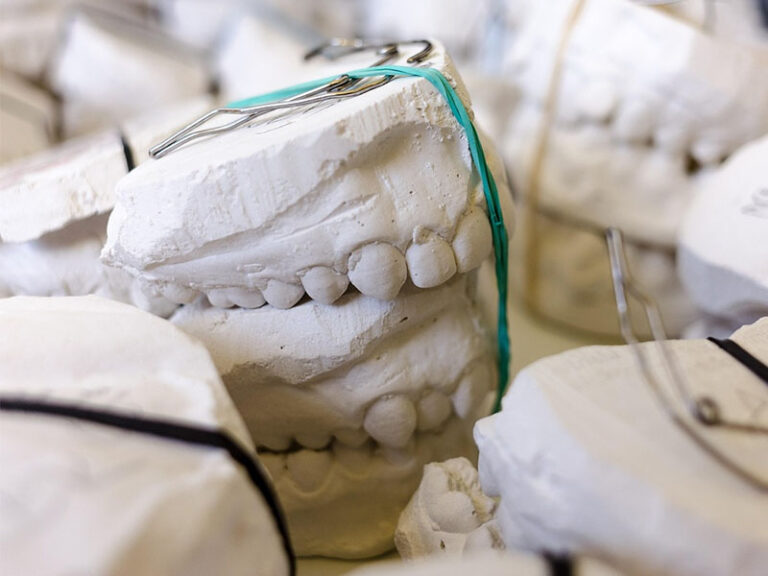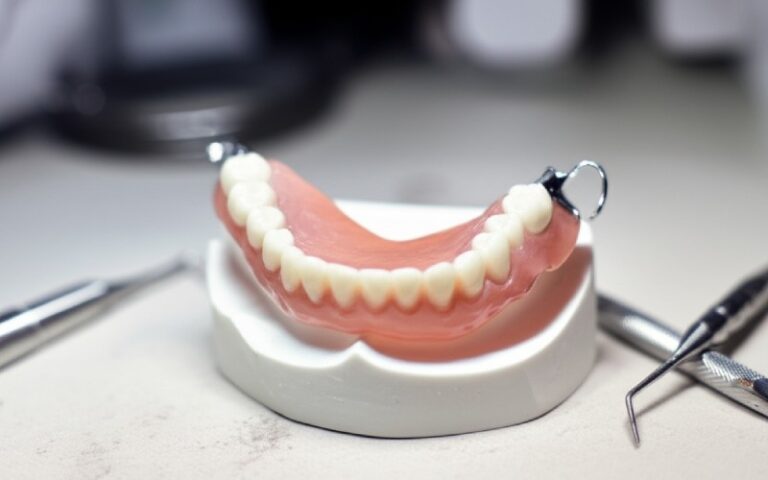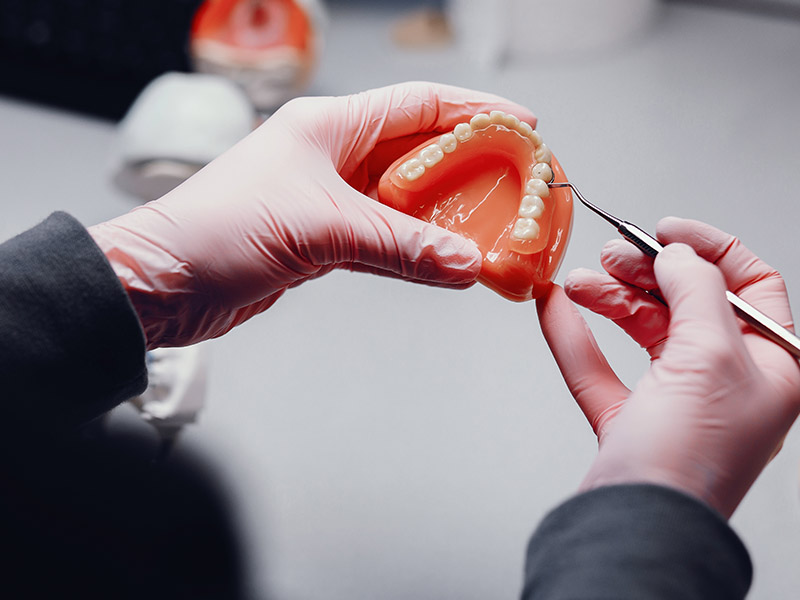
Will the Canadian Dental Care Plan Pay for Implants? Here’s What You Need to Know
People ask, “Will the new Canadian Dental Care Plan pay for my dental implants?” That’s a very good question. It can be upsetting to lose a tooth, and you need to know your choices. I have looked closely at this plan to help people just like you. I want you to know what to expect before you even make an appointment. This article will give you a clear and simple answer. We will look at what dental work the plan pays for. We will also talk about why it may not pay for a dental implant and what other choices you have. Reading this will save you time. It will also help you feel sure of yourself when you talk to your dental provider.
Table of Contents
What Is the Canadian Dental Care Plan (CDCP) All About?
First, let’s talk about the basics. The Canadian Dental Care Plan, also called the CDCP, is a plan from the government of Canada. It was made to help Canadians who don’t have dental insurance from a job or that they bought themselves. The main reason for the plan is to help people with lower family incomes pay for basic dental work. To join this plan, your family’s income has to be below a certain amount. You also cannot have any other health insurance for dental care.
This is not a plan that pays for everything. It is a special benefit. It has its own set of rules and a policy about what it will cover. The CDCP is run by a company called Sun Life. Your oral health provider will need to check that you are covered by the plan. Then, they will send the bill for your treatment to the plan. You can think of it as a special policy. It helps you pay for many different kinds of oral health care, but it has a limit on what it will cover.
So, What Dental Work Is Actually Covered by the CDCP?
The CDCP was made to cover many kinds of oral health care services. These services help keep your mouth in good shape. The plan wants to cover services that stop dental problems before they start and fix them when they happen. It is smart to know what the plan will cover before you make an appointment for treatment. Your provider can help you find out exactly what your coverage is.
Here is an easy-to-read table of the kinds of services covered by the CDCP.
| Type of Service | Examples of What Is Covered |
|---|---|
| Keeping Teeth Healthy | Cleanings, polishing, fluoride, and an exam to check your tooth and gum health. |
| Finding Problems | X-rays to look at your teeth and jaw bone, and other laboratory tests. |
| Fixing Teeth | Fillings to fix a hole in a tooth, or a crown to cover a tooth that is broken. |
| Root Canal Work | A root canal treatment to save a tooth when the root is sick. |
| Replacing Teeth | Dentures, which include full sets (complete) and smaller sets (partial) that you can take out. |
| Taking Teeth Out | Having a tooth removed. |
The CDCP covers these services to help you have good oral health and stop future disease. There is a limit on how often you can get some services, like a new crown or a full exam. Your provider will know the frequency limit for each service and can tell you about your treatment plan.
The Main Question: Does the CDCP Cover the Cost of Dental Implants?
Now we get to the big question. Does the Canadian Dental Care Plan cover a dental implant? The very short and simple answer is no. At this time, the operation to put in a dental implant is not a service that is covered under the CDCP. This is a very important fact to keep in your mind.
An implant is a replacement for a missing tooth that stays in your mouth for good. The procedure to get one can be a bit difficult. It can involve surgery to place a post into your jaw bone. Because this procedure costs a lot and is hard to do, the plan does not cover it. The CDCP is focused on paying for basic services to fix a tooth. If you decide to get an implant, you will have to pay for the procedure all by yourself. Your provider should explain that this procedure isn’t covered by the CDCP.

If Implants Aren’t a Covered Service, What Other Choices Does the Plan Cover?
So, the CDCP won’t cover an implant. What will it cover to replace a tooth you are missing? The good news is that the plan does cover other good choices. The main choices the plan will cover are dentures. A denture is a replacement for missing teeth that you can take out of your mouth. The plan gives good coverage for this service.
Here are the main choices the CDCP will cover:
- Complete Denture: If you don’t have any of your top or bottom teeth, the plan will cover a full removable denture.
- Partial Denture: If you are missing just a few teeth and still have some of your natural teeth, the CDCP will cover a partial removable denture. This kind of denture holds on to your other teeth to stay in place.
- Dental Bridges: In some special cases, a dental bridge could be covered. A bridge is a replacement for a tooth that is glued in place. It uses your healthy teeth next to the empty space for support. Your provider can tell you if you fit the criterion to get a bridge.
These services are a good way to replace a missing tooth. Your oral health provider can help you choose the best option for your oral health status. They can also explain what the plan will cover for each choice.
Could an Implant Service Be Covered in a Special Situation?
This topic is a little harder to explain. The plan says very clearly that it does not cover putting in an implant. But, there might be some very special cases where a service that is connected to it could be covered. This usually only happens if you have certain health problems that need a very specific kind of treatment. The plan would look at your situation individually to decide.
For any service that is not standard, your provider would need to ask for special permission from the plan. This is called a preauthorization. The plan would need to look at your health information and your needs to decide if they will approve the request. For example, some difficult surgical jobs might need this kind of approval. But you really shouldn’t count on the plan paying for an implant. It is much better to make a plan for a different treatment that you know the CDCP covers.
How Does Getting Approval First Work for Big Dental Services Under This Plan?
Getting approval first, or preauthorization, is a very important part of the CDCP. It is especially needed for services that cost more money. Some services require preauthorization. This just means your oral health provider must get a “yes” from the plan before they do the work. This step helps to make sure you really need the treatment. It also confirms that it is a benefit the plan will cover.
The way it works is simple. Your provider will make a treatment plan for you. If a procedure in that plan needs to get approval first, your provider will send a request to the CDCP with all the information. The CDCP will then look at the request. They will tell your provider if the service is approved and how much money they will cover. This has to be done ahead of time. This step keeps you and your dental provider safe from surprise costs. It makes sure everyone knows what the plan will cover and what you will have to pay. Services like getting a new crown or a difficult root canal often require preauthorization.
What About the Cost of a Crown for an Implant? Is That Service Covered?
This is a good question. We already know the plan does not cover the implant post itself. But an implant has two big parts. There is the metal post that goes in your jaw (the implant). Then there is the new tooth that goes on top (the crown). The CDCP does cover a crown to fix a tooth in many situations. So, will it cover a crown that goes on top of an implant? The answer is maybe, but it is not a simple yes or no.
Because the implant procedure isn’t a covered service, the crown that goes with it probably won’t be a service the plan pays for either. The plan’s policy is to cover a crown on one of your real, natural teeth that needs to be fixed. But, it is possible that parts of a bigger treatment plan could be looked at for coverage. Your provider would have to send in a request and explain why it is needed. The plan might cover the cost of a crown as a different choice to another covered service, but you should not depend on it. Always ask your provider to confirm the coverage for any part of an implant treatment.
How Do Payments and Coverage Work Between the CDCP and My Provider?
It is very important to understand how payment works. When you go to an oral health provider who is part of the CDCP program, they will ask to see your benefit card. They will use it to check with the plan to make sure you’re covered. After your appointment is done, your provider will send the bill right to the CDCP for the services you had. They will use the set CDCP fees for each service.
The CDCP doesn’t always cover 100% of the bill. How much the plan will cover will depend on your family’s income. You might have to pay for a part of the bill. This is called a co-payment. For example, the plan might cover 80% of the cost, and you would have to pay the other 20%. Your provider will explain what your co-payment amount will be before they start any treatment. You will pay your part of the bill to your provider. Your provider is not allowed to charge you more than the set CDCP fees for any service that is covered.

Where Can I Find More Page Details on What the CDCP Services Covered?
I always tell people that for the right information, it’s best to go to the main source. The government of Canada has a website with all the page details about the CDCP. You can find a complete list of what services are covered there. You can also find information about any limits on that coverage. This is the very best place to find information that is up to date.
You can go to the official government website at Canada.ca. Once you are there, you can search for the “Canadian Dental Care Plan.” You will find helpful guides, papers you can print, and information on which services need you to get approval first. This is the best way to get ready for your appointment. It will help you understand the full potential of your plan benefit. Your oral health provider will also have this information to help guide you.
Why Isn’t a Normal Implant Procedure a Service Covered by the CDCP?
It makes sense to ask why a fix that lasts forever, like a dental implant, isn’t a covered service. The reason is because of what the plan is trying to do. The CDCP was made to give basic oral health care to millions of people in Canada. The main idea is to help prevent and treat dental problems that many people have, to make their overall health better. This includes services like cleanings, fillings, root canals, and dentures.
To be able to cover as many people as it can, the plan has to be careful with its money. Dental implant procedures are big operations and cost a lot of money. If the plan covered them, it would make the whole plan much more expensive for the government. Because of this, the policy is to provide other choices that work well and don’t cost as much, like dentures. As the plan continues, the list of services covered might change. Some additional services could be added starting in 2025. But for right now, you should not expect the CDCP to cover an implant.
Key Things to Remember:
To sum it all up, here are the most important things to remember about the Canadian Dental Care Plan and dental implants:
- No Pay for Implants: The CDCP doesn’t pay for the surgery to put in a dental implant.
- The Plan Pays for Other Options: The plan does cover other good choices to replace a missing tooth, like a partial or a full denture that you can take out.
- Ask About Approval First: Many big dental jobs, like getting a crown or a root canal, need to be approved by the plan before the work starts.
- You Might Have to Pay a Part: The CDCP might not cover the whole cost. The part you pay will depend on your family’s income.
- Talk With Your Provider: Your oral health provider knows best. They can check your coverage, explain your treatment choices, and send any needed requests to the plan for you.
- Check the Canada.ca Website: For the best and most complete information, you should always look at the official Canadian Dental Care Plan website.








